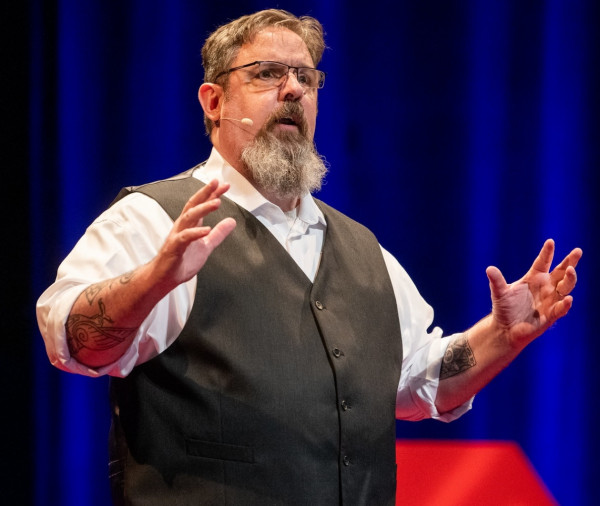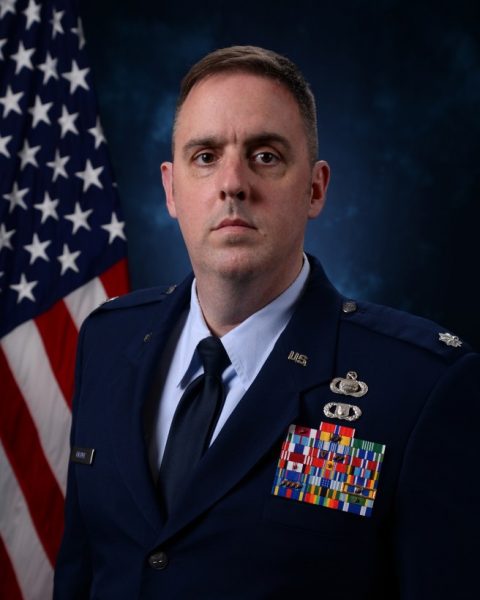James “Pigeon” Fielder, CSU Instructor in the Department of Political Science, had the honor of speaking at TEDxMileHigh this past November where he discussed the power of games. Games, as he describes, are spaces inside which ritual becomes real to the participants. Games allow you to work together to overcome obstacles that feel real but are risk-free. They allow you the space to take risks and learn from the consequences of your actions. “Perhaps, the first time you practice responding to a crisis should not be during an actual crisis,” Fielder suggests. Games are designed to be fun, but they can also be a matter of life and death.

Fielder—a self-proclaimed “professional gaming nerd” —has designed military, educational, and entertainment games since 1997. He joined CSU as an instructor after retiring from the U.S. Air Force as a Lieutenant Colonel and Associate Professor of Political Science at the U.S. Air Force Academy. He is currently serving as a Marine Corps University Non-Resident Krulak Fellow for the academic years 2021-2023. In addition, he is the Chief Operating Officer of Mobius Worlds Publishing and consults on organizational wargaming, crisis response exercises, and scenario planning.
For most of his 25 years in the Army and Air Force, he designed games from small team exercises all the way up to base-wide events with thousands of participants playing out real-world scenarios. Now, he researches player behavior inside of game worlds, runs game experiments, and teaches students using games to engage them with course concepts.
 In what he considers the proudest moment of his entire military career, Fielder was able to use a game to save lives. While serving in Afghanistan in 2014—during a year of a highly contested Afghan presidential election—he was instructed to forecast the results of the upcoming election as well as devise a plan to prevent any casualties as a result of the election.
In what he considers the proudest moment of his entire military career, Fielder was able to use a game to save lives. While serving in Afghanistan in 2014—during a year of a highly contested Afghan presidential election—he was instructed to forecast the results of the upcoming election as well as devise a plan to prevent any casualties as a result of the election.
Using real world voting behavior data from Afghanistan, his team developed their election forecasts. They then built a literal board game out of the map of Kabul, including characters such as cultural groups, NATO forces, Afghan security, and the Taliban. They embodied themselves inside the minds of the characters, and asked Afghan forces they worked alongside for input in their role-playing scenarios.
The strategy of the game—figuring out who might get hurt, who might attack, where the Taliban might show up, and where civilians would go if violence broke out. They ran the game over multiple iterations and kept coming back to the same security conclusions. Fielder shared his election security recommendations with the Colonel, and it turned out his forecast on the election results was correct. As a result of his game, no NATO troops, Afghan security members, or Afghan civilians in Kabul were injured or killed in electoral violence.
Corporations and non-profits are turning to Fielder for help in scoping and shaping games for crisis response exercises and scenario planning. He acknowledges that while games are fantasy, you can learn a lot about yourself and your team. “With games you build trust, diverse teams, you learn how to fail before you learn how to win, and you unleash courage and creativity you never thought possible,” he says. So, when the next crisis comes – whether it’s a major winter storm, data breach, another pandemic—Fielder believes games are the answer to preparing us. “Having played together before, you have gained personal and team confidence, knowing how to react when issues arise,” he says.
